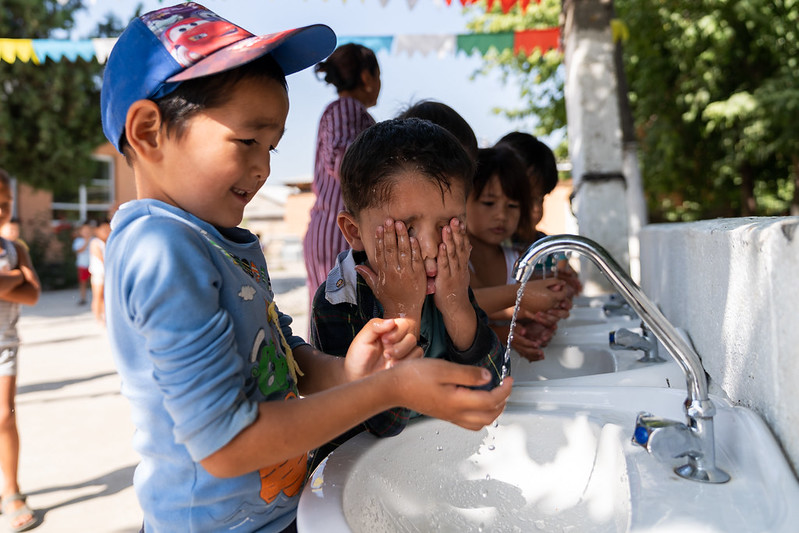We are all united in our stance – every child has the right go to school and to learn. Whether a child is a girl or a boy, comes from a poor background or a wealthy one, speaks Urdu, Kiswahili, Baniwa, Kyrgyz or Maithili, they should have the opportunity to go to school and to learn.
A commitment to SDG4 and inclusive education compels us to consider the diversity that schools welcome into the classroom, and part of this means enabling the inclusion of learners with different kinds of disabilities. But what if those disabilities were invisible, or not even known to the learner, parents or school? Even if a child struggles to focus, has trouble recognising numbers or struggles with writing, they should also have the opportunity to go to school and to learn.
Strategically informed by our partnership with Oak Foundation’s Learning Differences Programme, Schools2030 is fully committed to integrating a focus on learning differences into our equity and inclusion agenda. We use the term ‘learning differences’ to refer to a range of cognitive, developmental and neurological impairments, which includes specific learning disabilities such as dyslexia or processing challenges such as ADHD.
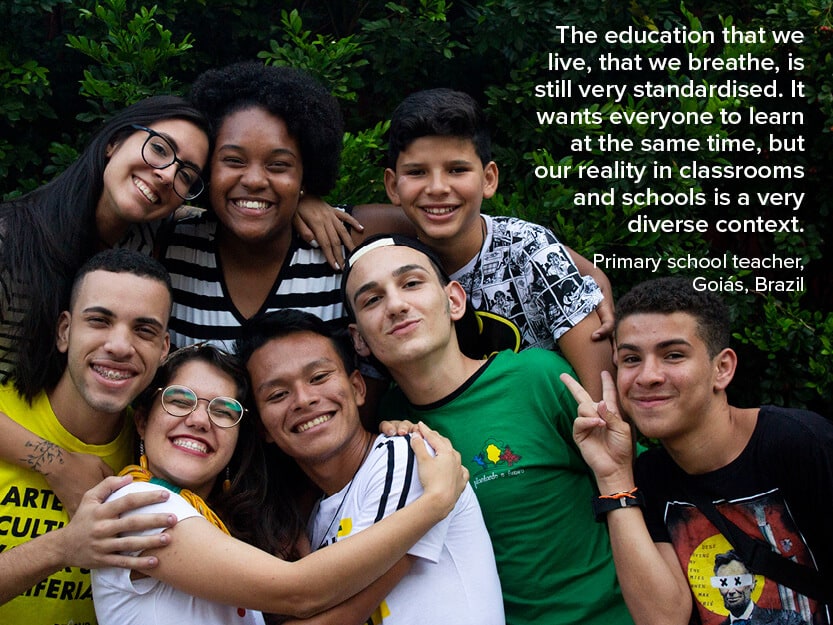
Whilst our programme theory posits that nurturing socio-emotional skills as well as academic skills through human-centred pedagogies leads to more equitable outcomes, there is a recognised gap in global evidence on learning differences, particularly in low and middle-income countries. This is of significance for us given our aspirations to move the needle on equity in education.
New Schools2030 report: Understanding Learning Differences Across Schools2030 Contexts
Given the sparse evidence available on learning differences and the general low level of awareness of specific learning disabilities in Schools2030 programme countries, our starting point was to understand how learning differences are conceptualised, understood and supported at the school level in policy and practice in each geographical context.
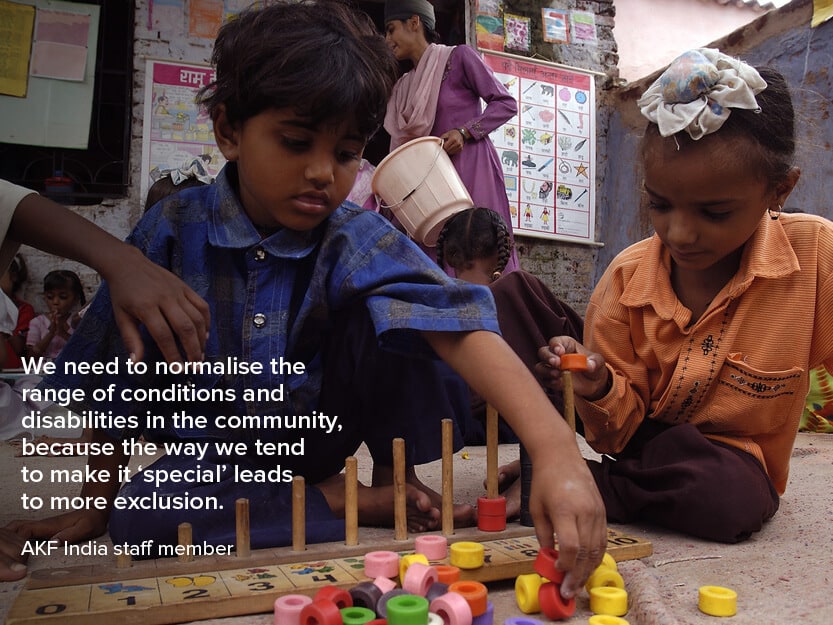
The resulting report documents the policy and practice landscape related to learning differences across nine of the ten Schools2030 programme countries (data collected from Tajikistan is currently being discussed with relevant stakeholders and will be added to the report once finalised). A policy review was supplemented with focus groups conducted with representatives from across the Schools2030 programme implementation teams as well as with teachers to better understand how (or whether) the inclusion policies identified are enacted at the school level, and to gain a fuller understanding of the relevant definitions and terms used in each context.
The report finds that inclusive education features prominently as a policy priority across the countries studied, and that policies specifically identify the learning differences population as a vulnerable group whose learning warrants further support from government. The global shift in our conceptualisation of disability – from a traditional medical model to a more modern social model – is at different stages in different countries, which is reflected in the different education provision models found, whether this be through segregated, integrated or inclusive learning environments.
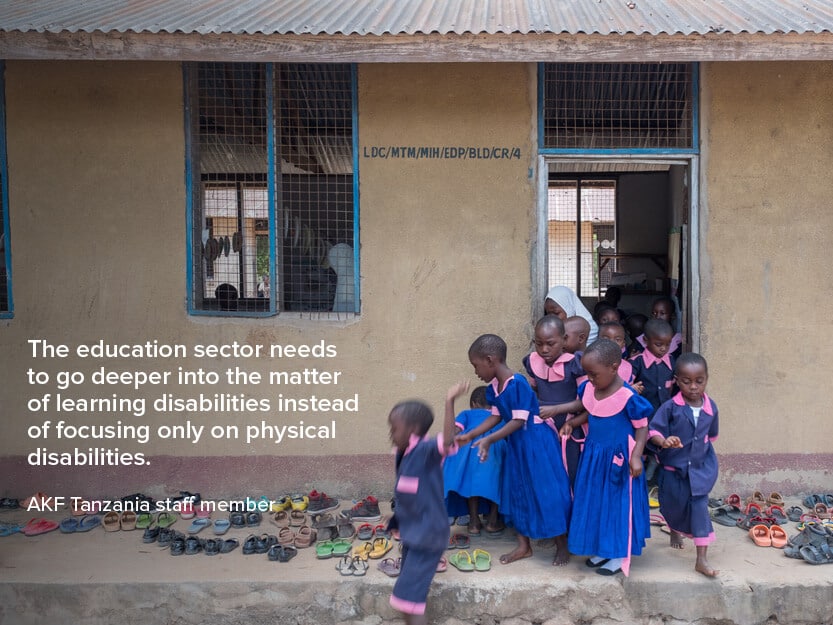
Nevertheless, it is clear that efforts across Schools2030 contexts to operationalise inclusive learning and the systematic support of those with learning differences, are largely not yet in line with the ambitions laid out in policy. A number of challenges seem to be preventing the successful implementation of what are well-written, well-intentioned policies, such as; limited awareness of learning differences, stigmatising beliefs, insufficient teacher training dedicated to inclusive practice, a lack of funding and resource, and the presence of significant compounding socio-economic challenges.
As a result, the report makes five key recommendations with a focus on strengthening:
- Teacher training provision
- Parental and community engagement mechanisms
- Investment in human resource, infrastructure and school equipment
- Investment in data, evidence and research
- Diagnostic systems
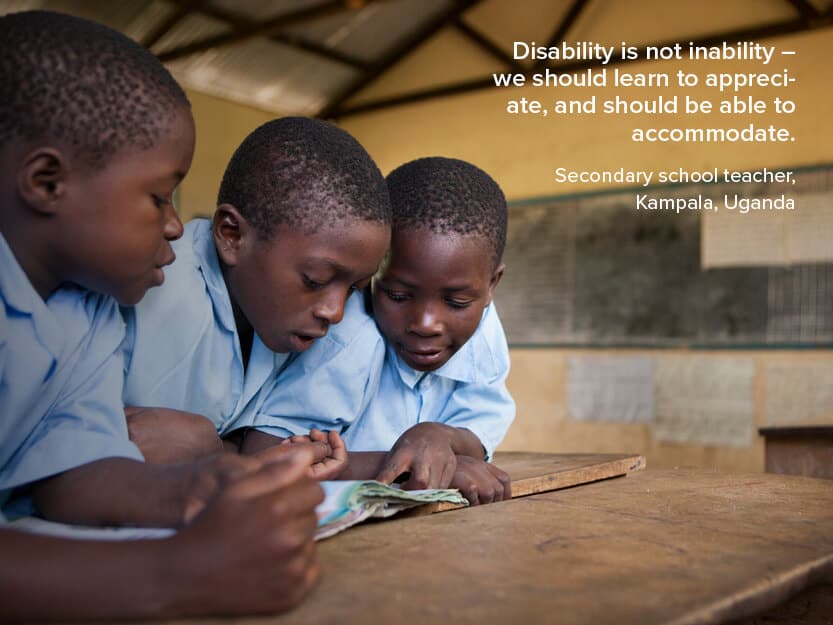
This report represents an important moment in Schools2030’s commitment to delivering contextually relevant, equity driven education programming. By publishing and disseminating this report across the Schools2030 network and beyond we seek to spotlight the importance of recognising the presence of learning differences and understanding these in context. Moving forward, Schools2030 is committed to better understanding how we may support students with learning differences through the programme, but also more broadly how we might influence education systems to bolster their efforts in delivering a fully inclusive education to all.
Read the full report here and access each report chapter on the Schools2030 reports hub.
Would you like to learn more about our work on learning differences and share your ideas on how we can strengthen this work? Join us for a webinar on Thursday 27th April at 1pm-2pm BST. More details and registration here.
